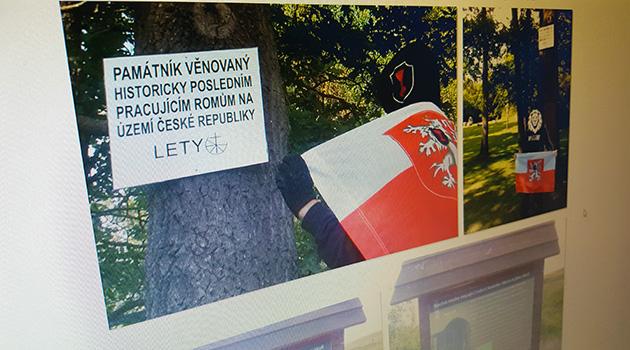Czech intelligence: Right-wing extremists return to anti-Roma rhetoric, public tolerance of racism and xenophobia in politics rising

The most serious threat to the constitutional order in the Czech Republic during 2018, according to the annual report from the Security Information Service (Bezpečnostní informační služby – BIS), was posed by pro-Russian activists disseminating disinformation. Recently such activists have been declaiming against the political order in the Czech Republic and against the country’s membership in the EU and NATO in ways that have become continually better-conceived, intensive and systematic, according to the counter-intelligence report published yesterday.
The traditional extremist scene in the country, both on the left and right sides of the spectrum, is said to have stagnated last year, according to BIS. The pro-Russian activists come from a broad circle of entities irrespective of left-right divisions or formal positions.
“These are members of the most diverse possible range of nationalist and populist movements – some political parties, some registered associations, some informal groups and initiatives, and some unaffiliated individuals, including groups and individuals from the anti-immigration movement that was once active here,” the report states. BIS includes media outlets in this category that present themselves as either alternative or independent, as well as persons striving for the territorial division of Ukraine and Cossack groups.
BIS explains the motivation of these groups as being their ideological affiliation, their admiration for the regime of Russian President Vladimir Putin, and their adoration of Russia generally. “For some of these persons, nevertheless, there are indications of a direct connection to Russian state power, or they are being directed by the intelligence services of the Russian Federation,” the report states.
The damaging nature of this activism, according to BIS, is its exploitation of deceptive, manipulative, misleading allegations that influence public opinion, evoking and then maintaining fear and tensions in society. This contributes to the polarization and radicalization of society, undermining the population’s faith in the principles of a democratic, free state.
Among the dominant subjects addressed by right-wing extremists, as in previous years, are criticism of the country’s immigration policy, significant anti-EU attitudes, criticism of Muslims, and defining themselves in contrast to human rights activists and NGOs, while anti-Roma rhetoric has also returned to their arsenal. As for anarchists, their public activities have stagnated.
BIS reports that militantly-oriented anarchists have been practically inactive in the Czech Republic recently. The radical Communists have been fragmented as well, which is why some have considered creating a broader leftist front.
During 2018 – according to the authors of the report, more than at any time previously – rhetoric and subject matter that was previously the domain of “orthodox” right-wing extremists has gradually been exploited by a constantly-expanding spectrum of entities. Public tolerance for such speech, according to BIS, has significantly increased and the perception of the borders of the political mainstream has significantly shifted with respect to which racist or xenophobic expressions are tolerated as components of mainstream politics.
